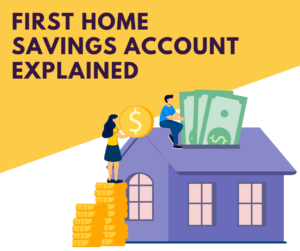Are you eager to embark on the journey to homeownership but find yourself held back by the daunting task of saving for a down payment? You’re not alone. Many aspiring homeowners face the challenge of accumulating enough funds for this essential step. However, with the right strategies in place, you can accelerate your down payment savings and bring your dream of owning a home closer to reality. As a seasoned mortgage agent, I’ve compiled a comprehensive guide to help you achieve your savings goals faster than you ever thought possible. Let’s dive into the top strategies for saving for a down payment quickly and efficiently:
1. Set Clear Savings Goals:
Start by determining how much you need to save for your down payment. Research the current market conditions and typical down payment requirements in your desired location. Set specific, achievable savings goals to keep yourself motivated and on track.
2. Create a Budget and Stick to It:
Develop a detailed budget that outlines your income, expenses, and savings targets. Identify areas where you can cut back or reduce spending to free up additional funds for your down payment. Stick to your budget religiously to maximize your savings potential.
3. Automate Your Savings:
Take advantage of automation tools offered by your bank or financial institution to set up automatic transfers into your down payment savings account. By automating your savings, you ensure that a portion of your income is consistently allocated towards your goal without any effort on your part.
4. Explore Down Payment Assistance Programs:
Research government or nonprofit organizations that offer down payment assistance programs for first-time homebuyers. These programs may provide grants, low-interest loans, or other forms of financial assistance to help you bridge the gap between your savings and the required down payment amount.
5. Boost Your Income:
Consider taking on a side hustle or freelance work to supplement your primary income and accelerate your savings efforts. Use the additional earnings exclusively for your down payment fund to expedite the process.
6. Trim Unnecessary Expenses:
Review your monthly expenses and identify any non-essential items or services that you can eliminate or reduce. This could include dining out less frequently, canceling unused subscriptions, or finding more affordable alternatives for utilities and entertainment.
7. Maximize Your Savings Potential:
Take advantage of high-yield savings accounts or certificates of deposit (CDs) to earn more interest on your down payment savings. Compare interest rates offered by different financial institutions to find the best option for maximizing your returns.
8. Leverage Windfalls and Bonuses:
Put any unexpected windfalls, such as tax refunds, work bonuses, or inheritance money, directly into your down payment savings account. These lump-sum payments can significantly boost your savings progress and bring you closer to your goal.
9. Downsize Your Current Living Situation:
Consider downsizing your living arrangements temporarily to reduce housing expenses and free up more money for your down payment fund. This could involve moving to a smaller apartment, finding a roommate, or temporarily living with family or friends.
10. Stay Focused and Motivated:
Saving for a down payment requires discipline and determination. Stay focused on your long-term goal of homeownership and remind yourself of the benefits that await you once you achieve it. Celebrate milestones along the way to keep yourself motivated and inspired.
By implementing these expert strategies and staying committed to your savings goals, you can expedite the process of saving for a down payment and turn your dream of owning a home into a reality sooner than you ever imagined. With careful planning, budgeting, and perseverance, you’ll be well on your way to unlocking the door to your future home.
Click HERE to schedule a meeting
Click HERE to apply for a mortgage

Drew Hermiston
Mortgage Agent Level 2
Dominion Lending Centres YBM Group
FSRA# 11129
Tel: 705-818-5865

